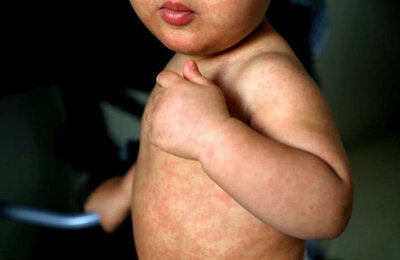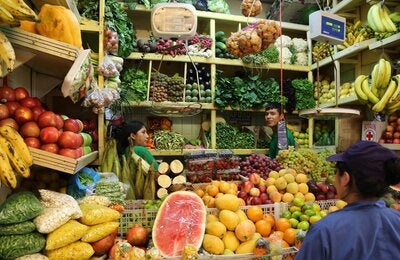Entries from Guatemala, Colombia, and Peru are winners of the Fifth Latin American Health Journalism Awards
Washington, D.C., September 1, 2009 (PAHO) — Three newspaper articles that clarify misconceptions about blood donation and encourage people to save lives by giving blood have won the top three prizes in the Fifth Latin American Health Journalism Awards of Red-Salud ("Health Network").
The awards—sponsored by the Pan American Health Organization (PAHO), the United Nations Population Fund, the Communication Initiative, and the New Ibero-American Journalism Foundation—are designed to motivate journalists in Latin America to increase and improve the quality of news coverage of health issues. This year's contest has two categories: "blood donation" and "sexual work and health." First-place winners will receive $2,000, second-place $1,000, and third-place $500.
The top three winners in the "blood donation" category were chosen by an expert jury from among entries from some of the region's top newspapers and magazines. The winners are:
First prize: Margarita Pacay for "Life Runs through Your Veins: Share It!" in Amiga magazine, Prensa Libre, Guatemala. The article reports on Ministry of Health efforts to raise awareness of blood shortages in the nation's hospitals and the resulting deaths of patients who are victims of violence, accidents, hemorrhage during childbirth, and other conditions that require blood transfusions. Pacay's article, aimed at women readers, notes that only 1 in 1,000 Guatemalans donates blood, in large part because of erroneous beliefs about blood donation. The article describes efforts to educate people about the safety of blood donation and emphasizes the need for people to protect their own health as a prerequisite for donating blood. Pacay is co-editor of magazines and supplements at Prensa Libre.
Second prize: Martha Morales Manchego for "Blood Donors, Silent Heroes," in Hoy, Colombia. The article presents popular conceptions and personal testimonies that illustrate problems with the nation's blood supply. Family members of patients report they were pressured by hospitals to provide blood, contrary to laws that require blood for transfusions to be covered by health plans. Others describe their reasons for not donating blood, and experts explain why these reasons are invalid. Morales is the coordinator of the "Health" and "Better Living" sections of Hoy.
Third prize: Consuelo Alonzo Calixto for "Stories of True Heroes," published in La República, Peru. The article profiles three staff members of a hospital blood bank who try to motivate others to give blood and who personally donate blood two to four times per year. Alonzo is co-editor of La República's "Society" section.
In announcing the awards, the 2009 jury for the "blood donation" category offered suggestions on how to improve journalistic coverage of the subject. They recommended that stories:
- Provide "mobilizing information" that helps readers take action, such as telephone numbers to get further information and addresses of health centers where donors can give blood.
- Present material graphically in ways that facilitate a better understanding of a complex topic, including using sidebars and graphics.
- Report material objectively and refrain from perpetuating common misconceptions and prejudices.
- Include solutions to problems, rather than simply exposing problems.
In judging the submissions, the 2009 jury ensured that the winning articles accurately reflected several basic principles about blood donation espoused by PAHO, including:
- Family replacement donation—in which patient's families are required to secure donated blood—should be eliminated in favor of voluntary altruistic donation. (Paid donation, officially rare in the Americas, is also not recommended.)
- People who donate blood should be completely healthy and should weigh at least 50 kilograms, or 110 pounds.
- The maximum age of blood donors should be determined based on the health conditions of the local population. In general, people ages 65 to 70 who have previously donated blood may continue to do so without restrictions.
- Possible risks of blood donation include adverse effects such as nausea and dizziness, which primarily affect first-time donors and young people who are underweight. Potential blood donors should be informed about these risks and provide their consent before donating.
The 2009 Latin American Health Journalism Awards will continue to accept entries in the "sexual work and health" category through Sept. 30, 2009 (see http://www.comminit.com/es/condiciones2009).



